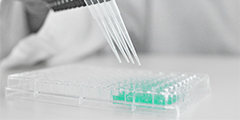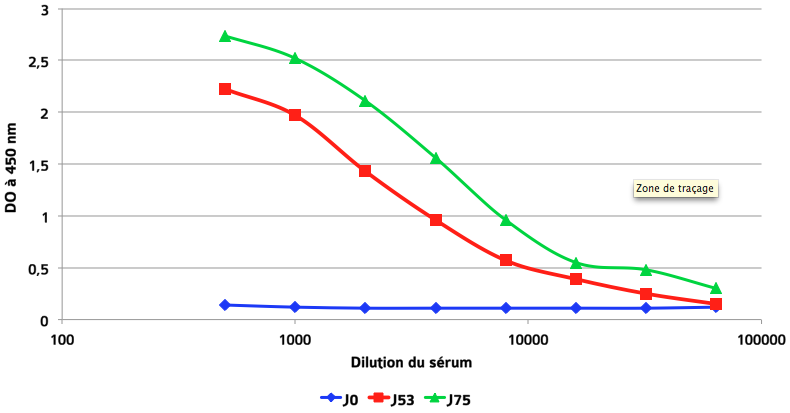We use cookies to make your experience better. To comply with the new e-Privacy directive, we need to ask for your consent to set the cookies. Learn more.

Follow the evolution of the sera immunoreactivity and make the right decision!

ELISA monitoring is a very simple and convenient way to follow the evolution of the sera immunoreactivity all along the immunisation procedure. Without knowing how the host animal responds to the immunogen, adaptations of the protocol to face low immunoreactivity is impossible.
Our extensive experience in antibody development allows us to face most challenging unforeseen events during the protocol. Therefore we are able to bring you relevant advice about how to adapt the project to reach your ultimate goal.
To develop the ELISA protocol the immunogen is coated onto adapted microtitre plates and several parameters are optimised including:
- antigen concentration and serum dilutions
- incubation time and temperature for the immune reaction to occur
- dilutions of the peroxidase-conjugated secondary antibody
ELISA for polyclonal projects

Pre-immune sera are sampled on day 0 and intermediate bleeds are collected for testing all along the protocols at the dates indicated in the timelines. Every test bleed is shipped to your laboratory so that you can choose either to perform ELISA monitoring in your laboratory (Standard service) or to request us to perform this task (All Inclusive® service), and take advantage of our expertise.
Note: anti-PTM antibodies development projects automatically include ELISA monitoring.
For each test bleed we test, we provide you with an intermediate report showing the titre of the sera and the evolution of each animal’s immunoreactivity. Thanks to these data and our know-how, we can advise you to make the right decisions whether to continue, adapt or stop the project.
ELISA for monoclonal projects
During the immunisation step
Monoclonal antibody development projects automatically include ELISA monitoring to measure the serum immunoreactivity during the immunisation procedure. As soon as an immune response is detected, test bleeds are shipped to your laboratory so that you can run tests in your specific conditions to confirm the sera immunoreactivity.
At the end of the project the animals immunoreactivities are compared to each other. Based on these results, our experience and our advice, you will be able to choose the animal from which the splenocytes used for the fusion step will be extracted.
During the screening and cloning steps
Monoclonal antibody development involves the generation of hybridomas which are immortalised antibody-producing cells. Provided a suitable environment, these cells produce and secrete antibodies in the extracellular medium indefinitely. ELISA testing is also carried out to identify those which secrete the expected antibody from those which do not, either at polyclonal stage during the screening step or at monoclonal stage after the cloning step.
